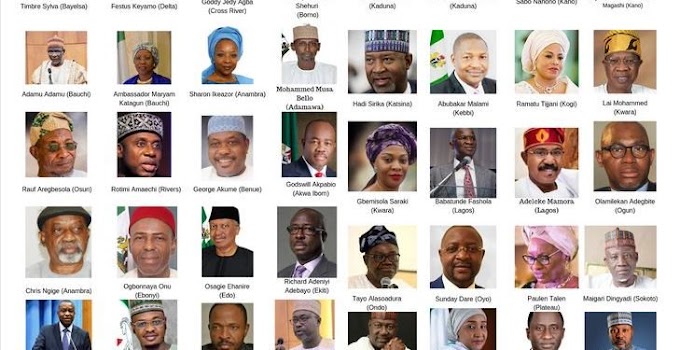Public offices or institutions are key areas where government businesses are carried out. The quality of public service delivery at these offices and institutions is measured by the readiness of Government to put in check the activities going on at the various Ministries Departments and Agencies (MDAs).
As a matter of fact, the primary duty of every Government is to provide or improve the quality of life of her citizens. To be able to achieve this, Government through the establishment of Ministries Departments and Agencies come up with social services targeted at improving the quality of lives of the citizens.
One way the Nigerian Government is doing this is through SERVICOM, an acronym for Service Compact with All Nigerians.
SERVICOM is a Federal Government initiative established on March 21, 2004 to promote effective and efficient service delivery in MDAs to ensure customer satisfaction and to manage the performance-expectation gap between Government and citizens as well as other members of the public, on issues of service delivery.
In today's iWanSabi Civil Service Current Affairs, we have compiled some key facts to note about the Government SERVICOM initiative.
12 Key Facts To Note About SERVICOM
1. SERVICOM was an initiative that came to live under the leadership of former President Chief Olusegun Obasanjo GCFR
2. It was established in March 2004, as the outcome of a Three-day Special Presidential Retreat on Service Delivery with the President, Ministers, Special Advisers, Presidential Aides and Chief Executives of major Extra-ministerial Departments and Parastatals.
3. The Nigerian Service Delivery Research Team which was constituted by former President Chief Olusegun Obasanjo visited the United Kingdom (UK) in 2003 to investigate how the British government has gone about improving its service delivery.
4. The technical team was commissioned in January 2004 headed by U.K Prime Minister’s Adviser on Public Service Reform Dr. Wendy Thomson. Other members of the team included members of the office of Public Service Reforms (OPRS), Center for Management and Policy Studies (CMPS) in the Cabinet Office, Consultant from the U.K and South Africa and service delivery team nominated by the Nigerian Government.
5. It's a Presidential Initiative pledging to rendering quick and satisfactory service in all government Agencies to all Nigerians.
6. It's mounted on the imperative to change the system of service delivery and driven by Government’s commitment to deliver service and citizens’ expectations of service delivery.
7. The present National Coordinator/CEO of SERVICOM is Mrs Nnenna A. Akajemeli. She was appointed by President Muhammadu Buhari on Wednesday, 12 April 2017.
8. SERVICOM is guided by four main principles which are
- Affirmation of commitment to the service of the Nigerian nation
- Conviction that Nigeria can only realize her full potential if citizens receive prompt and efficient services from the state
- Consideration for the needs and rights of all Nigerians to enjoy social and economic advancement
- Dedication to deliver services to which citizens are entitled, timely, fairly, honestly, effectively and transparently
9. The key main functions of SERVICOM offices are to
- Co-ordinate the formulation and operation of SERVICOM Charters and Service Improvement Plans in MDA’s
- Monitor and report progress and performance of MDA’s under SERVICOM obligations through Compliance
- Evaluations using the SERVICOM Index
- Carry out surveys of services and customers’ satisfaction
- Publicize charters and sensitize the citizenry to demand quality service as a right at all times
10. It equally gives the public the right to demand good services as contained in MDAs’ Service Charter, by so doing, service takers are meant to understand their rights to public services, the service standards they should expect and how to demand for that service or speak up where it is deficient or lacking.
11. SERVICOM operates through a network of Ministerial SERVICOM Units (MSUs) established in all MDAs to refocus every institution in the public service towards better service delivery and supports these MSUs to write up Service Charters, establish Complaints Systems at service front-lines as well as develop Service Improvement Plans.
12. The core mission of SERVICOM is to improve citizen satisfaction by promoting service excellence in public services







